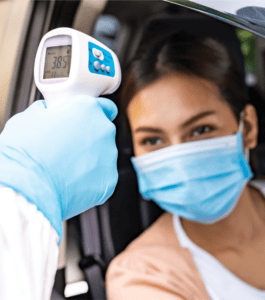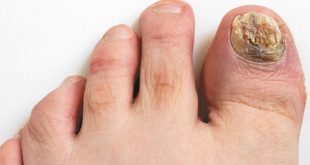 With the status of COVID-19 and the fact that it will continue to thrive longer than many have anticipated, it’s essential to understand how our immune function plays such a large role in protecting and worsening viral infections and to better understand the team approach that Charlotte County is providing for its community. We spoke to Immunologist Dr. Usha Chandrahasa to learn more about the process and what patients need to know.
With the status of COVID-19 and the fact that it will continue to thrive longer than many have anticipated, it’s essential to understand how our immune function plays such a large role in protecting and worsening viral infections and to better understand the team approach that Charlotte County is providing for its community. We spoke to Immunologist Dr. Usha Chandrahasa to learn more about the process and what patients need to know.
“We in Charlotte county are a unique team of specialists and primary-care providers, working closely together in a well-developed COVID-19 task force.” Dr. Chandrahasa explained. “This pandemic has opened new avenues for us to work together to benefit the patients and the community as a whole. When the virus hit in March, we healthcare providers were devastated because we had no viable information.
“My colleagues and I immediately started discussing our process and plan of action. We wanted to be ahead of the virus and the information, not behind it, so we immediately began researching to help implement a productive strategy. We looked at the science of virus, the data, and the information as a team, so we could provide concise information to our patients.
“Hours were spent researching and collaborating. We saw what happened in NY, and we wanted to protect our community and not let this destruction happen here. We looked beyond the virus itself and examined its immune-altering disease process. We started to understand what we needed to do to stay ahead. Hospitalists, emergency physicians, pulmonologists and our outpatient physicians began and continue working together for our community as the “COVID-19 Task Force.”
“The virus has a unique spike protein that uses its receptors to adhere to our body’s ACE2 receptors. ACE2 receptors are present throughout our airways. The virus binds and replicates, infecting the patient. This is why masks and physical distancing are still the first line of defense.
“The virus spreads from person to person, as it needs a new vector, and once it attaches to the ACE2 receptor, it can replicate further. The virus has an RNA polymerase, which is the engine of the virus. Most patients have limited symptoms, such as sore throat, cough, fever and body aches. However, 20 percent will progress to the second stage, which is the immune stage.
“The virus knows how to invade cells and destroy them. It creates an inflammatory cascade throughout the body, especially in the lungs, causing lung destruction and the overall systemic invasion affects multiple organs. We call this stage the cytokine storm. Cytokines are regulator proteins that regulate immune cells. When there is an excess of these cells, we refer to this as the cytokine storm. Certain disease processes increase cytokine production, like diabetes, obesity, hypertension and coronary artery disease, and is essentially why people with underlying conditions can have a challenging time fighting off COVID-19.
“We want to identify when this virus is in the nose and prevent it from spreading to others. The PCR test (nasal swab) looks for the virus in the nose and amplifies it. Patients may not be symptomatic and still have the virus. If a patient is having symptoms, but PCR is negative, this can be a false negative with the need to test again. Depending on results, we ask patients to isolate or quarantine. PCR testing has improved tremendously, and the rapid test is helping to identify more patients.
“We monitor SARS-CoV-2 patients closely via telemedicine and reinforce isolation while looking for any progression of the disease. We monitor symptoms with finger pulse oximeters and through outpatient lab work as a team, looking at white blood cell count, C-reactive protein, interleukin 6 (cytokine storm marker), and other markers on a comprehensive level. If patients need to be admitted, we work with healthcare providers and our community hospitals, again, as a team for our community.
“Millennium provides drive-through testing, drive-through blood draws, and we have a special team dedicated to testing patients. We continue to track our patients and work with them through their journey. The best advice we can give patients is to continue to wear a mask. It’s critical for preventing the spread of the virus.”
Dr. Usha Chandrahasa
Allergist/Immunologist
Millennium Physician Group
Usha Chandrahasa, M.D., Allergy and Clinical Immunology Physician, earned her medical degree from the Madaras Medical College in Madras, India. She completed her residency at Northeastern Pennsylvania Hospital Program in Internal Medicine in Wilkes-Barre, Pennsylvania. She completed her fellowship in Allergy and Clinical Immunology at Louisiana State University Health Sciences Center in New Orleans, Louisiana.
Dr. Chandrahasa is a professional member of the American Academy of Allergy, Asthma and Immunology. She began her practice in Southwest Florida in 2002.
Dr. Chandrahasa welcomes you to her convenient location in Port Charlotte, Florida.
Allergy & Immunology
3400 N. Tamiami Trail, Suite 201, Port Charlotte, FL 33952
(941) 743-2277
 Southwest Florida's Health and Wellness Magazine Health and Wellness Articles
Southwest Florida's Health and Wellness Magazine Health and Wellness Articles

